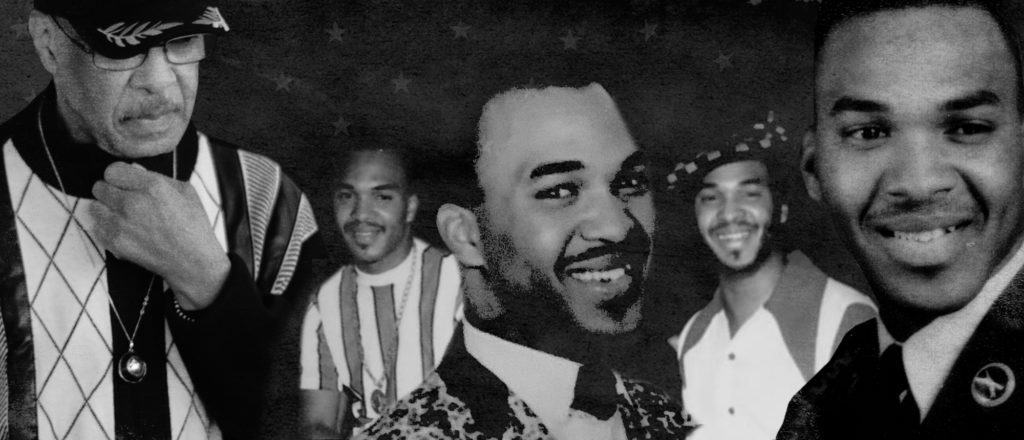
Fifty years ago, a young Panamanian singer by the name of Ralph Weeks, who a few years prior had arrived on the U.S. music landscape with the group Johnny and The Expressions, self-produced and independently released a record with an absolute monster of a soul ballad called “Something Deep Inside.” It was a tune that Weeks had come up with on the spot during one of many gigs in the heart of Brooklyn’s Prospect Heights, at the time a cultural hub for many immigrants from the isthmus living in the borough. Along with his group, The Telecasters, Weeks often played at a Panamanian-owned club in the neighborhood called 4 Star’s (or STA4R’s) which sponsored a 7-inch single of the song. “Something Deep Inside” is believed to be one of only two releases on the STA4R’S imprint.
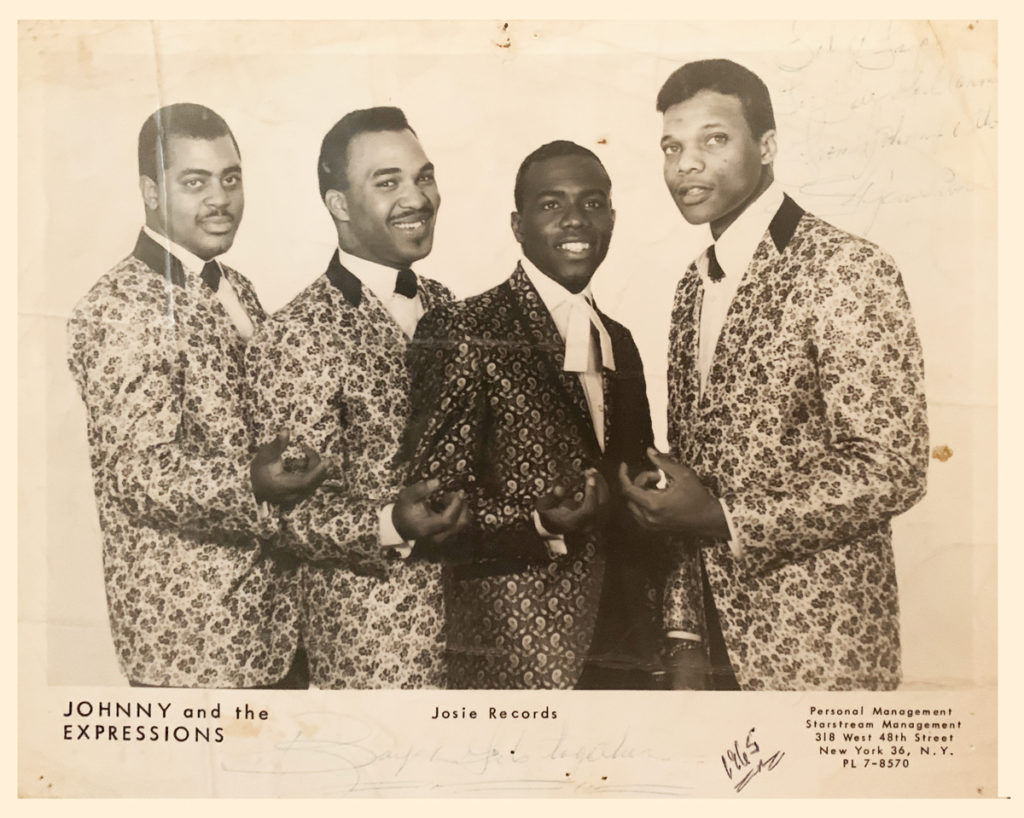
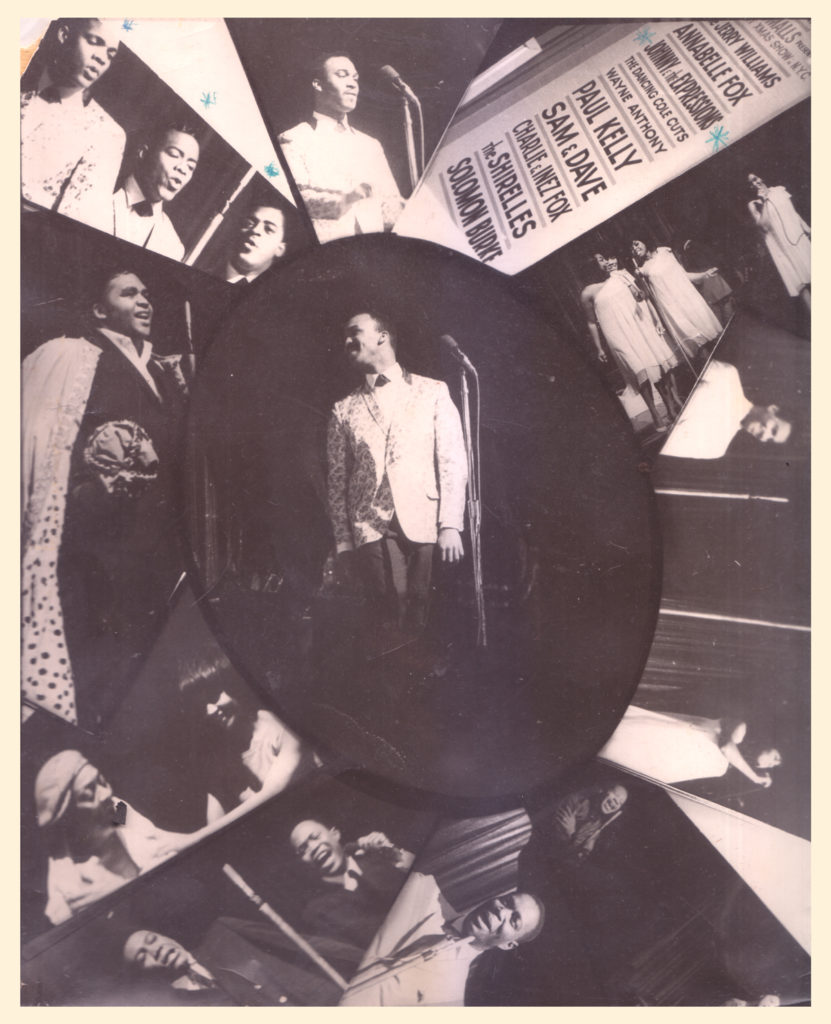
Weeks certainly had an undeniable talent for writing soul and doo-wop music, evident in the songs he penned from 1965-66 for Johnny and The Expressions. Unfortunately, however, most of that potential was lost on Josie Records, a major league NY-based label that signed Johnny and The Expressions and would eventually drop them after three singles were released and before they had the chance to cut an album. Out of the group’s six recorded songs, Weeks penned four, including “Shy Girl,” “Now That You’re Mine,” “Give Me One More Chance” and “Something I Want To Tell You.” The latter in particular would go on to become a classic entry in the canon of sweet soul aficionados everywhere, partly stemming from its inclusion on the seminal California compilation, East Side Story, an unofficial but extremely influential vinyl series that soundtracked car cruising culture on the East Side of Los Angeles and beyond. By curious coincidence, “Something I Want To Tell You,” a tune that would eventually amass almost 10 million combined plays on youtube, was attributed incorrectly both times it was issued: a writing credit appears as “R. MEEKS” on the original Josie 45, a clerical typo by the label design team; while East Side Story truncates the group’s name to “Johnny & The Express.” Perhaps it was just emblematic of Weeks’ subsequent anonymity. Despite the modest success of Johnny and The Expressions, which included a short-lived opportunity touring up and down the Eastern seaboard, as well as opening slots for legends Solomon Burke, the Shirelles, and Sam & Dave at The Apollo, the group’s signature sound was probably several years late for any real crossover success, coming in the midst of a rapidly changing music industry climate that was moving away from love ballads into more radical territory.
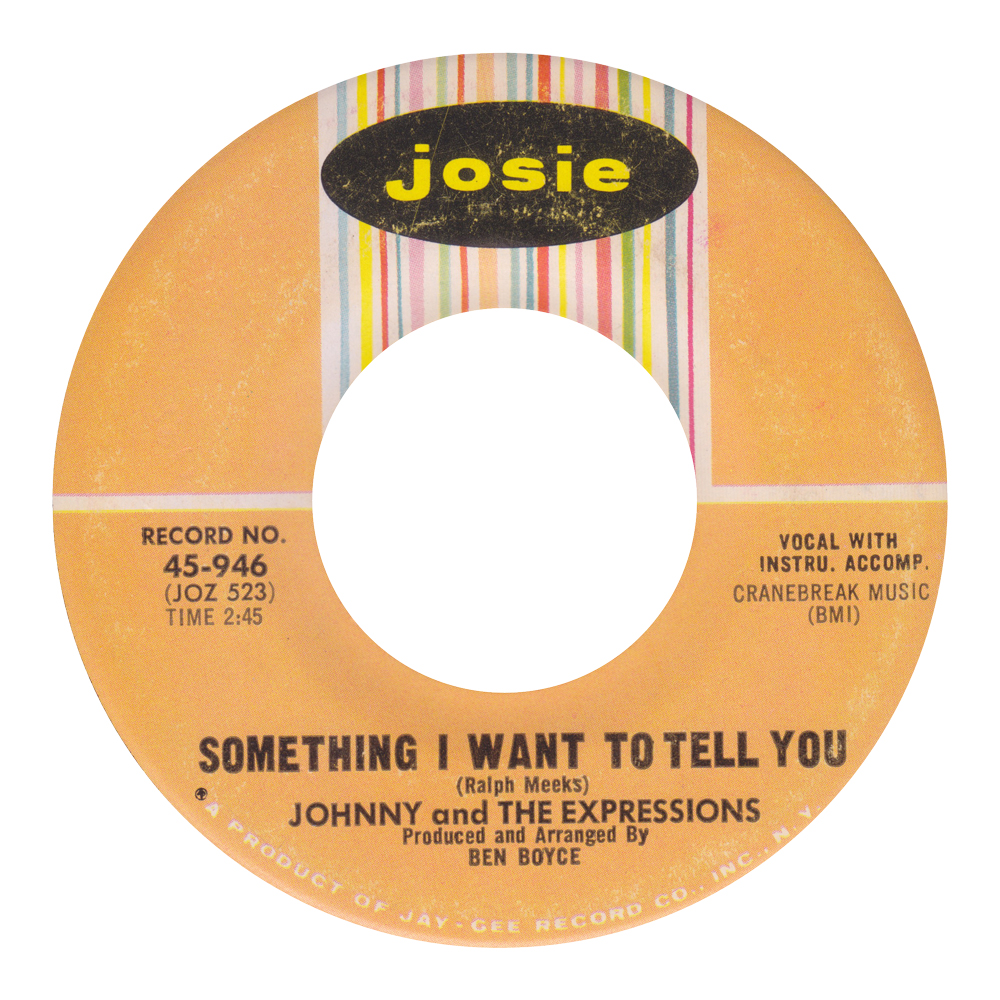

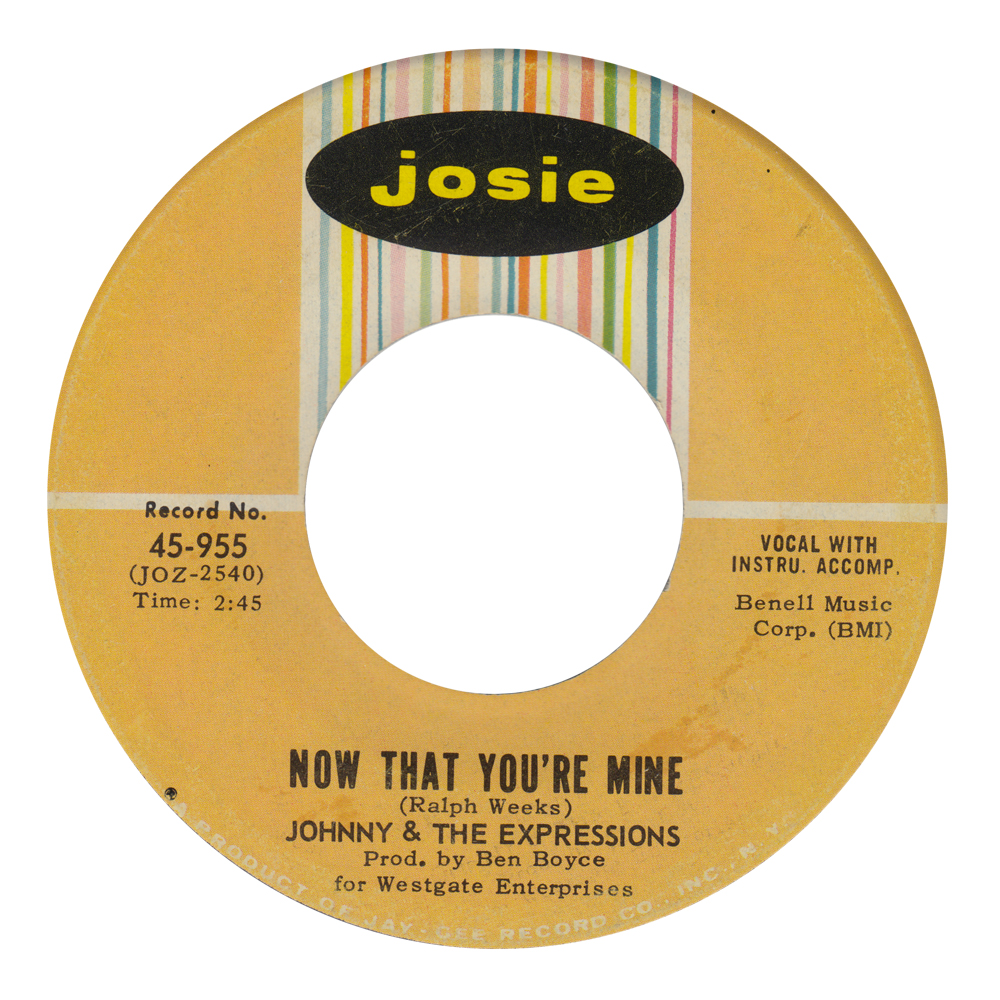
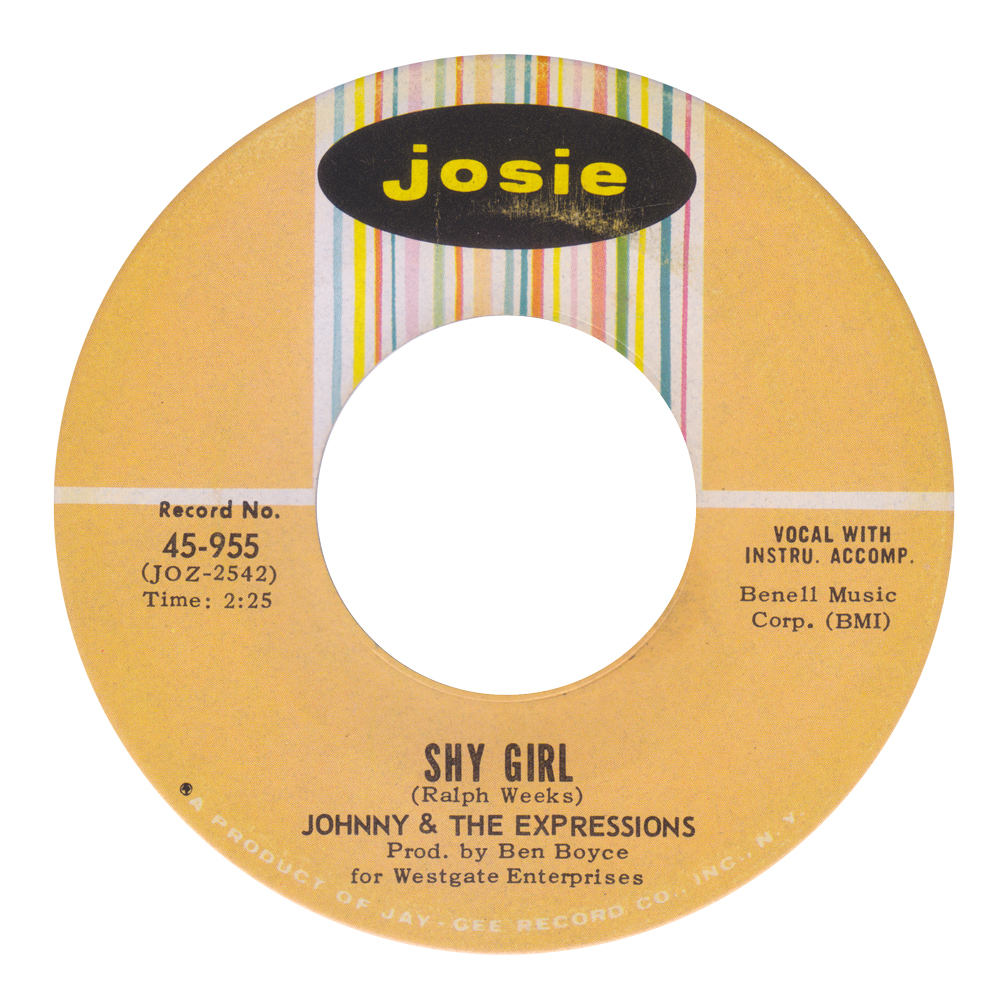
After a short musical hiatus, Weeks returned to the scene in 1967 to play a New Year’s Eve show in Brooklyn, a last minute substitution for a no-show. Ralph assembled an improvisational 2-piece performance with a buddy, playing bass, electric guitar and singing. It drew him back into the thrill of performing, as he recalled, “people in there were hungry for some music man!” Weeks remembers, “people danced, they had a good time, and by 7 o’clock in the morning I said, look, this is the last song!” At this time a built-in circuit of Panamanian-owned nightclubs ranged from Prospect Heights to Bushwick, with The Manchester Club (Bushwick Ave & Kosciuszko), Bell’s Lounge (Vanderbilt & St. Marks), and of course 4 Star’s (Sterling Place & Rogers Ave).
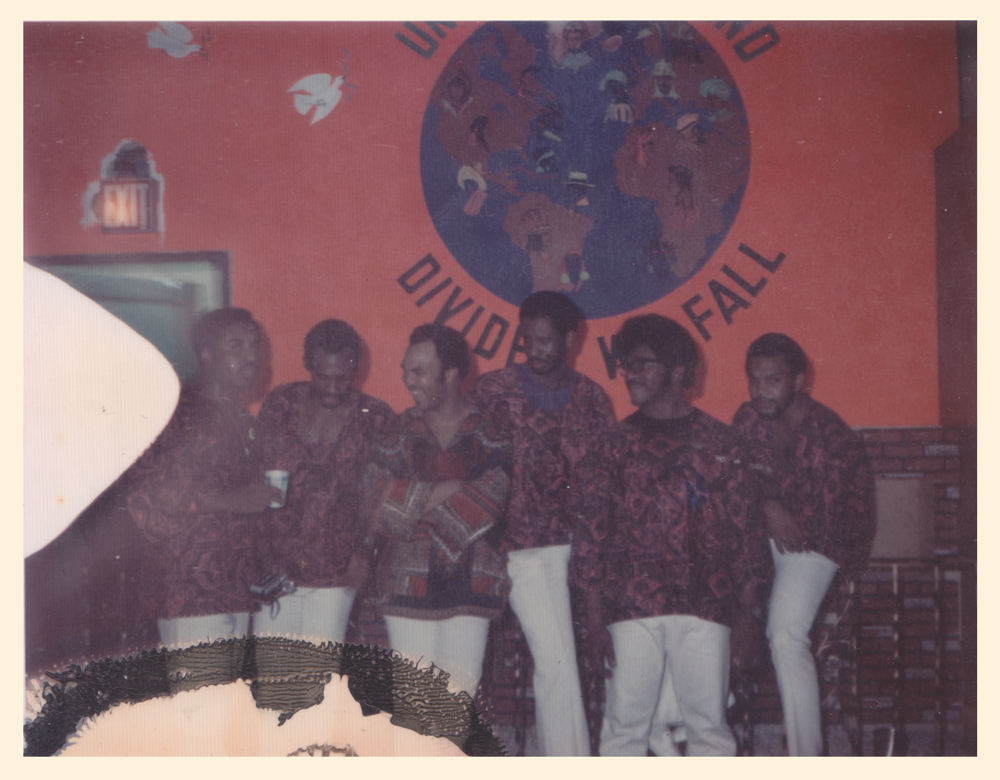
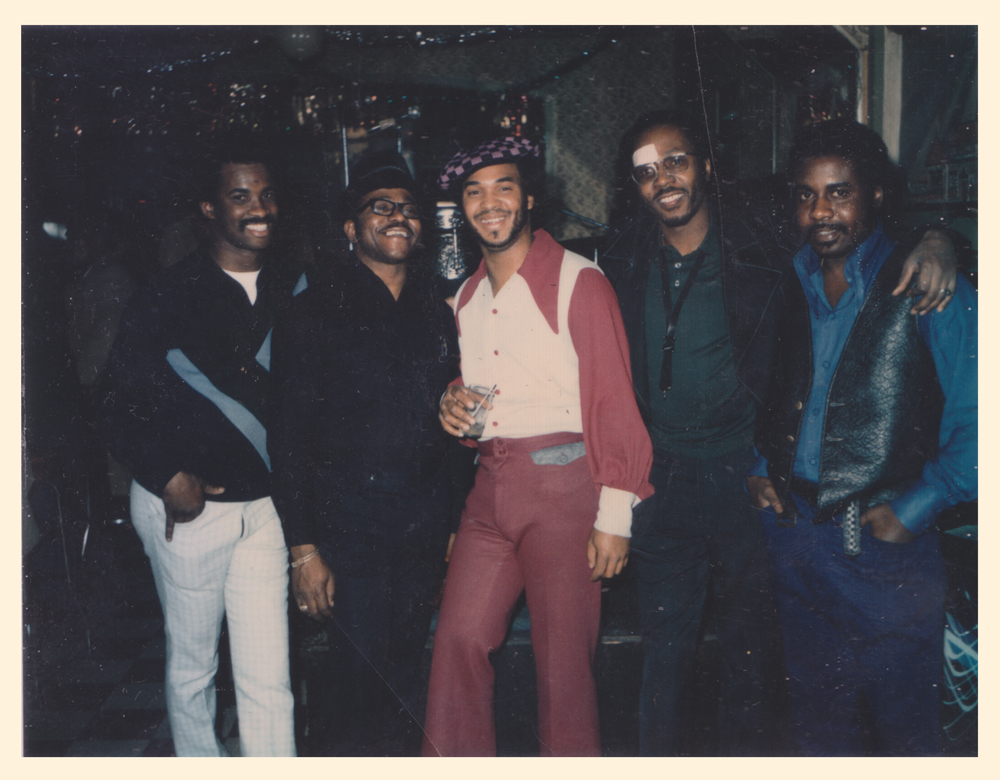
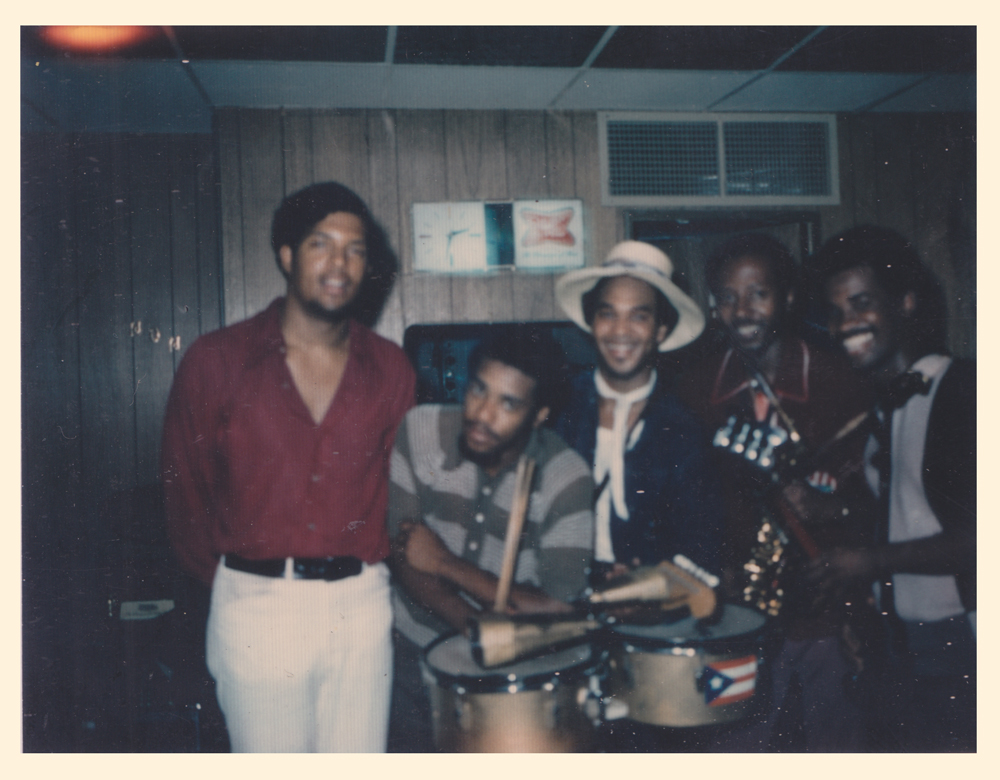
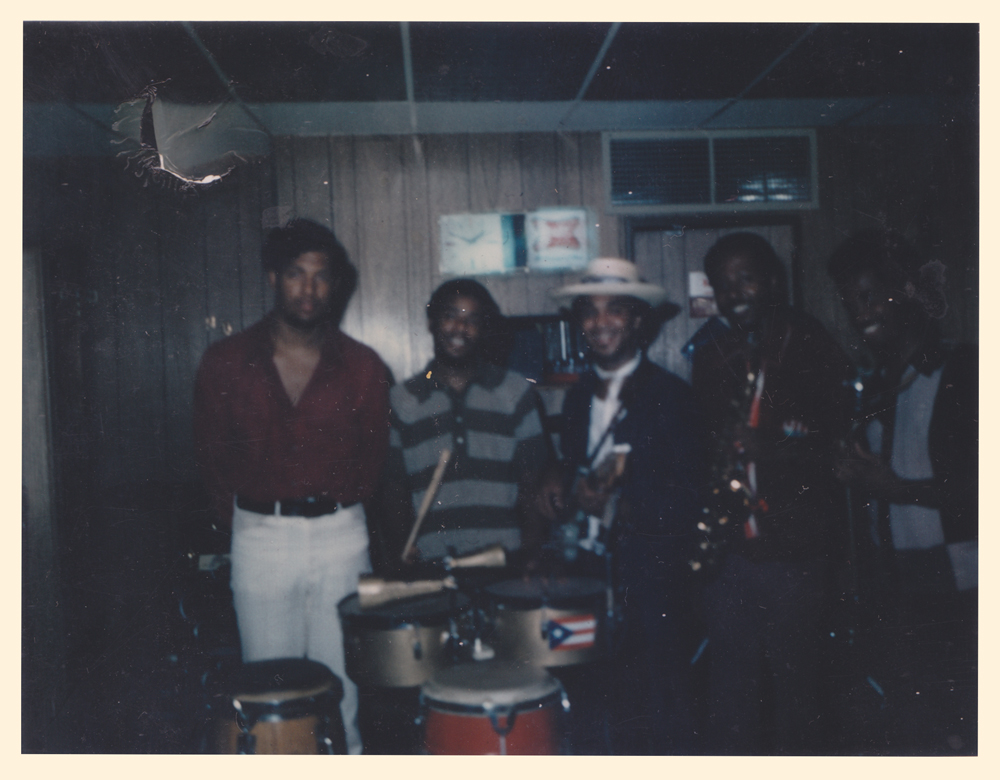
That successful New Year Eve’s gig in 1967 led to a residency at The Manchester Club, and the formation of a new band, The Telecasters. Ralph & The Telecasters played all of 1968 at the club, often moonlighting at Bell’s Lounge and 4 Star’s. They capped off 1968 with another New Year’s Eve jamboree, incredibly discovered recently to have been recorded live and cut to acetate by Weeks’ older brother Clarence. At this time, The Telecasters backing band consisted of Reggie Boyce (trumpet), Clarence Junior Robinson (bass), Felix Wilkins (flute and sax), Gilbert Paisley (drums) and Albert Morrison (congas). It was during this first year playing the circuit that things started to pick up for the Telecasters. As Weeks put it, “any opportunity I got, I played. Every weekend I had to run to New York.” [Weeks had, in 1966, relocated north to nearby New Haven, Connecticut.] In the audio clip below, listen to an excerpt of the above-mentioned acetate, an extended 8-minute rendition of “Something Deep Inside” that is getting its public debut here. At the onset of 1969, the band had been playing the tune in their repertoire for a year straight, and it was catching on.
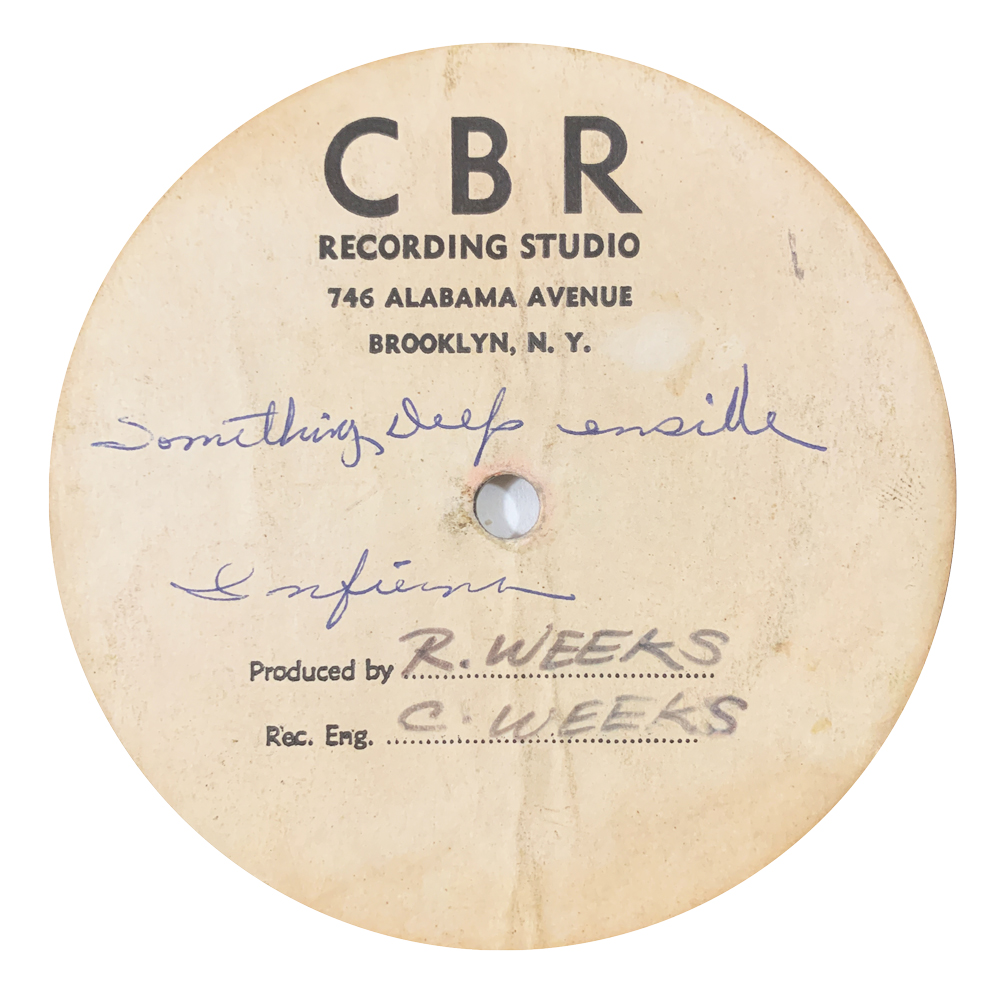
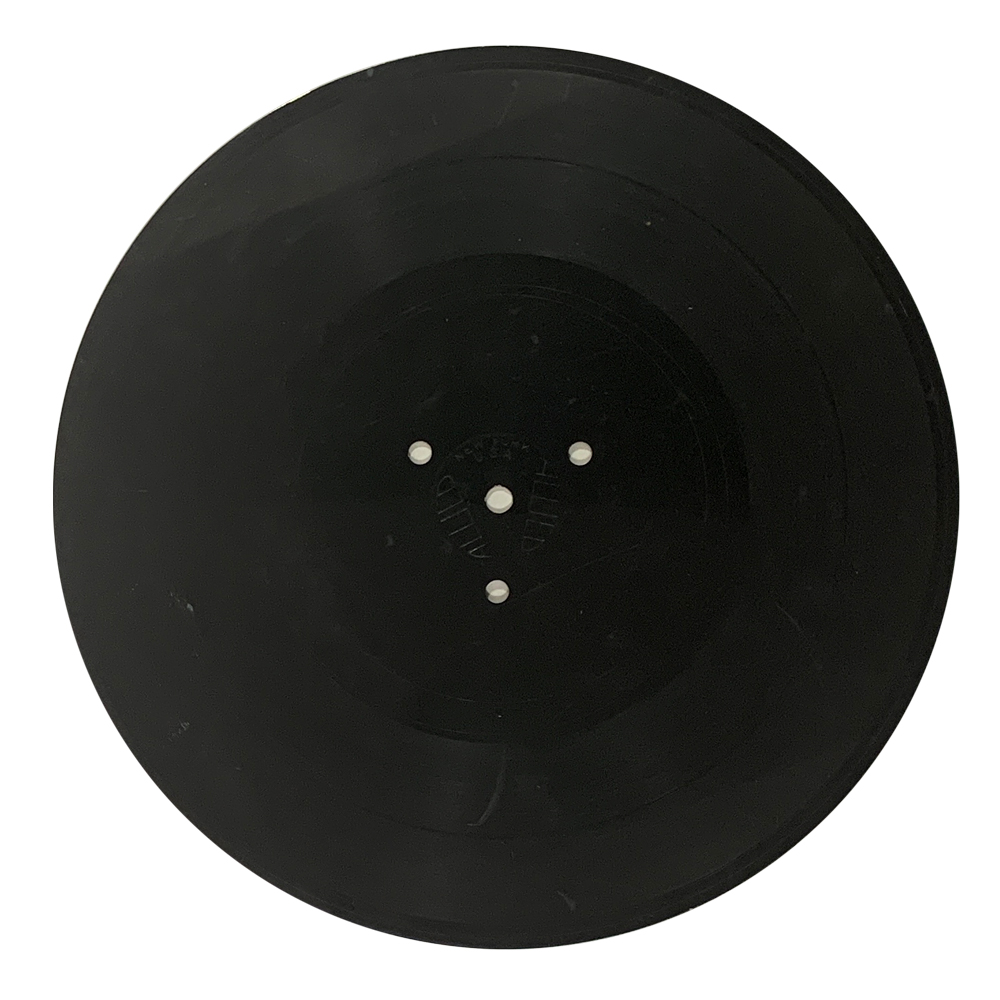
Ralph & The Telecasters were ready to hit the studio as 1969 got started. With a recording date sponsored by 4 Star’s, the group recorded and mixed a 2-song single in one whirlwind session in New York City. “1-2-3 done,” as Weeks remembers. His signature falsetto voice stood front and center on the new recording. It was reminiscent of his previous records with Johnny and The Expressions, at its heart another slow ballad, but this time, raw and rocking with a new kind of energy, something Weeks and the crew dubbed Tele Rock. It was a new vibe, “one of our own,” says Weeks, and had to be described accordingly. Lightning quick production in the studio and in the pressing facility resulted in 500 copies of the STA4R’S seven — a minuscule amount by the standards of the day — almost all of which Weeks subsequently sent back to his native Panama. This move certainly led to an extreme scarcity of the record in the U.S., and decades later helps explain why it is most often found amongst other dusty gems excavated by vinyl diggers in Panama. It also explains the record’s exorbitant price tag (ebay’s most recently sold copy as of this writing went for $455).
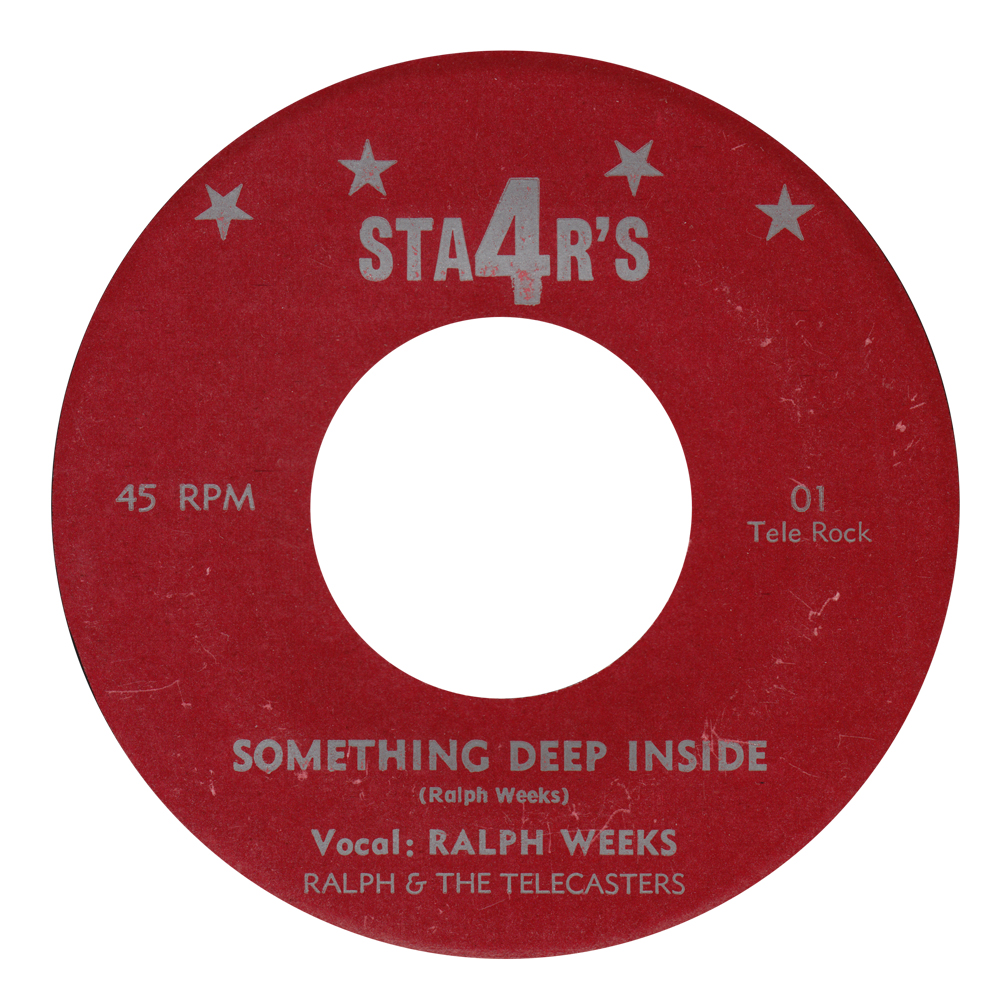
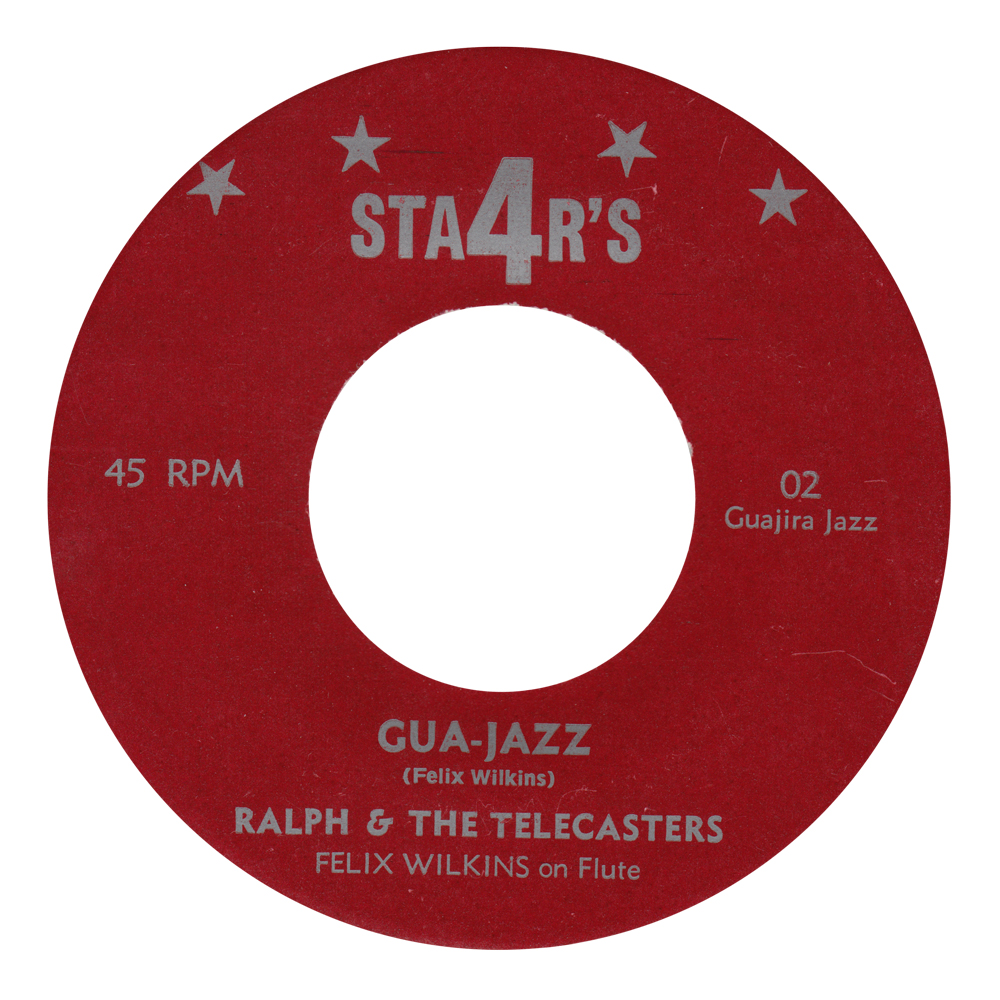
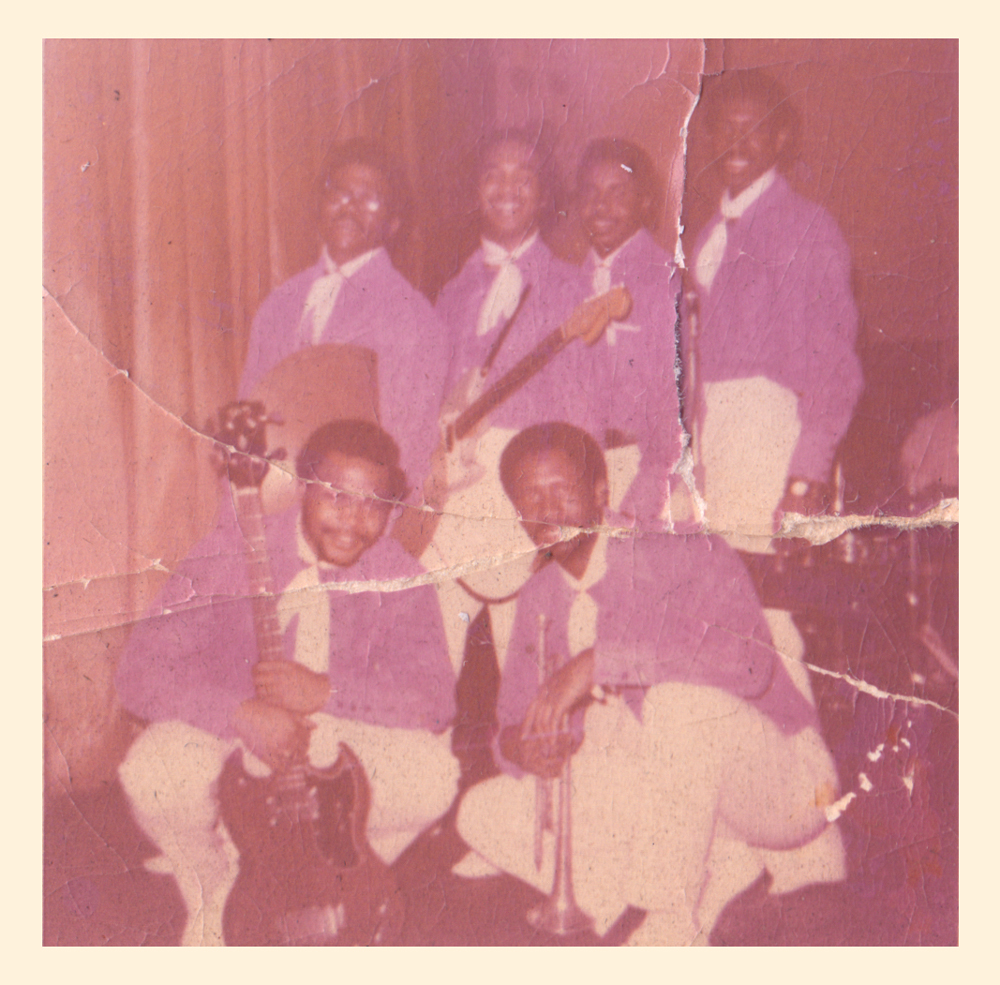

During his visits back to his native country, Weeks enjoyed a well-deserved status as a celebrated crooner. Earlier in the decade, Panama had begun what would be a 15+ year explosion of Combos Nacionales, a deep musical scene of Panamanian nationals who fused Latin-American balada, bolero and Afro-Caribbean rhythms with the soul and funk sounds coming out of the United States. It was a unique combination that led to some of the rawest and deepest recorded music throughout the Caribbean and Latin America, an onslaught of obscure vinyl pressings that are still being rediscovered to this day. Weeks had the perfect sound for this era, and as a native Panamanian who had cut records in the U.S., he had a bilingual voice coveted by the small but established industry of Panama.
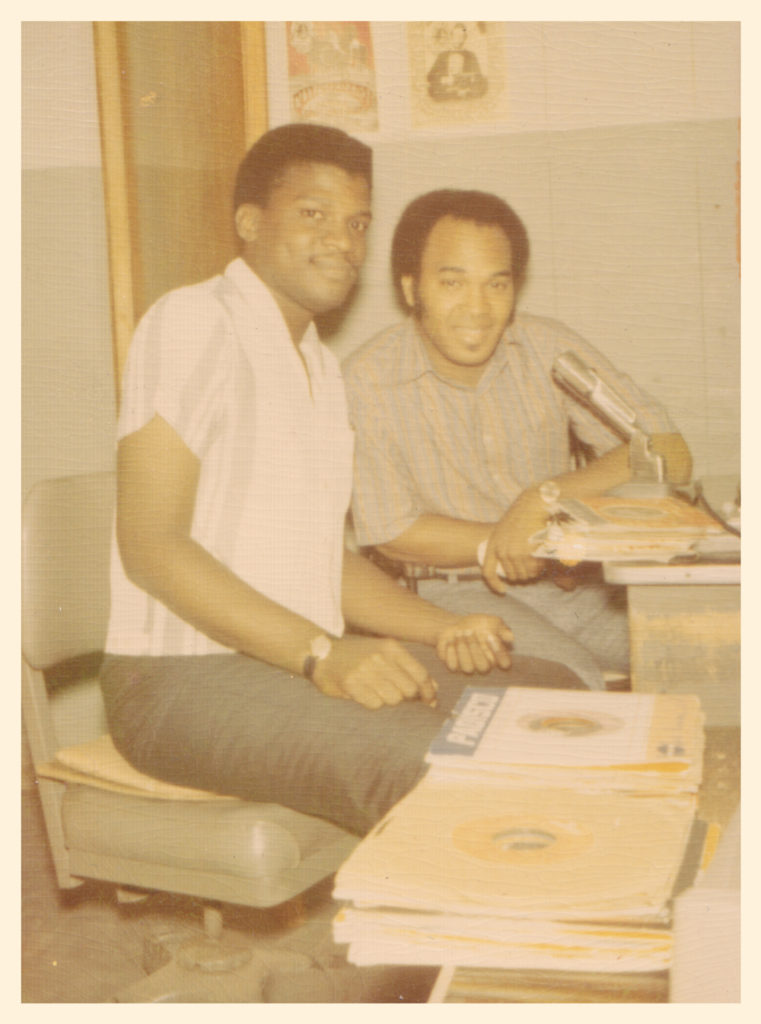
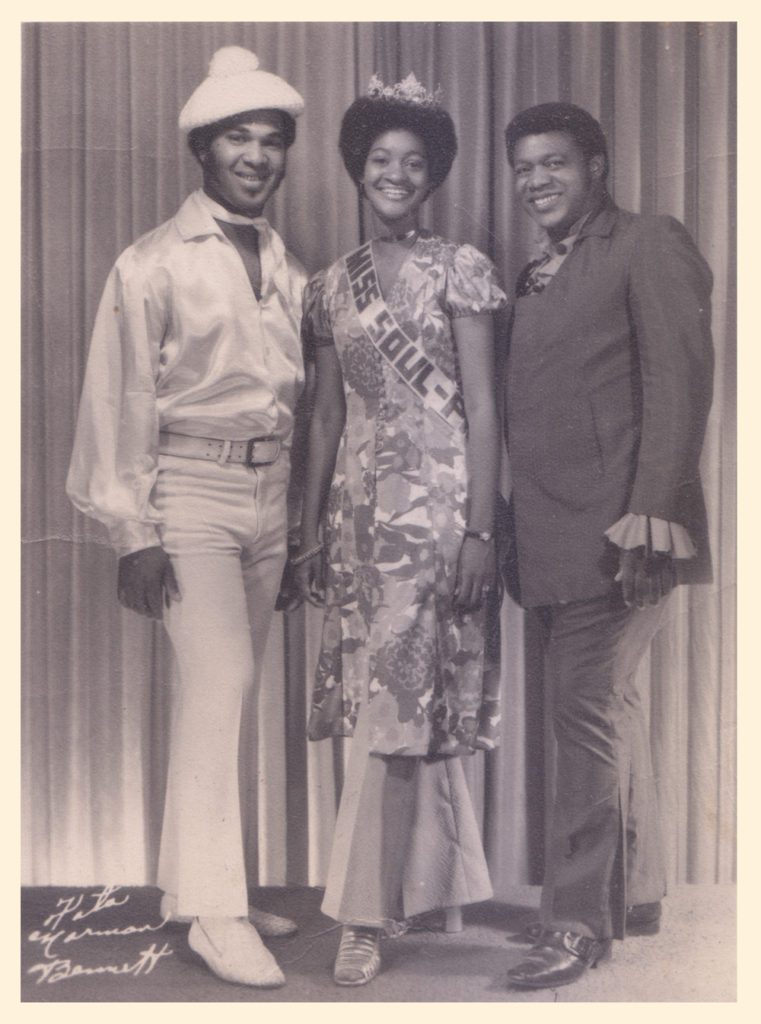
“In 1969, we were supposed to go down to Panama after the record was cut,” says Weeks. “Something Deep Inside” was already resonating throughout Panama, and selling in the shops. For some now-forgotten reason, the tour didn’t come together, so instead of going down to perform with the Telecasters, Weeks went alone the following year. “I decided I was going back to Panama, just on vacation. It had been 10 years since I was down there,” recalls Weeks. Before he left, he translated “Something Deep Inside” into his native tongue, a fortuitous move that would soon pay dividends. In person, Weeks began spreading the word about the record, putting copies in the record stores, and was soon invited down to a local radio station called HOG, a frequency popular with GI’s stationed in the Canal Zone since it was musically hipper than the Armed Forces Network and didn’t sign off at midnight, like the AFN. Listening to his interview were members of a new group on the scene that would eventually become known as Los Dinámicos Exciters or The Exciters. The young group asked him to perform with them on an upcoming live show the following week. Weeks remembers, “It was supposed to be their show, but it kind of turned into my show!” The Exciters could already draw a nice crowd, but with the addition of Ralph Weeks on the bill, it became a standing room only event, sold out with no seats left in the venue and people sitting in the aisle. Ralph fondly remembers, “I looked out from the curtain, looked out there to the crowd, and there was no place to walk.” Already known in the country for his work with Johnny Matthews (of The Expressions, himself another Panamanian from Colón) and now for his new recording with The Telecasters, Weeks performing “Something Deep Inside” was a big deal. To the delight of all in the packed performance hall, Weeks instructed The Exciters to run an encore of the tune. For the first time ever, Weeks sung his newly penned Spanish lyrics. It brought the house down, and another spark was lit. With the chemistry between Weeks and The Exciters on full display, it was a natural move to book a studio session together.
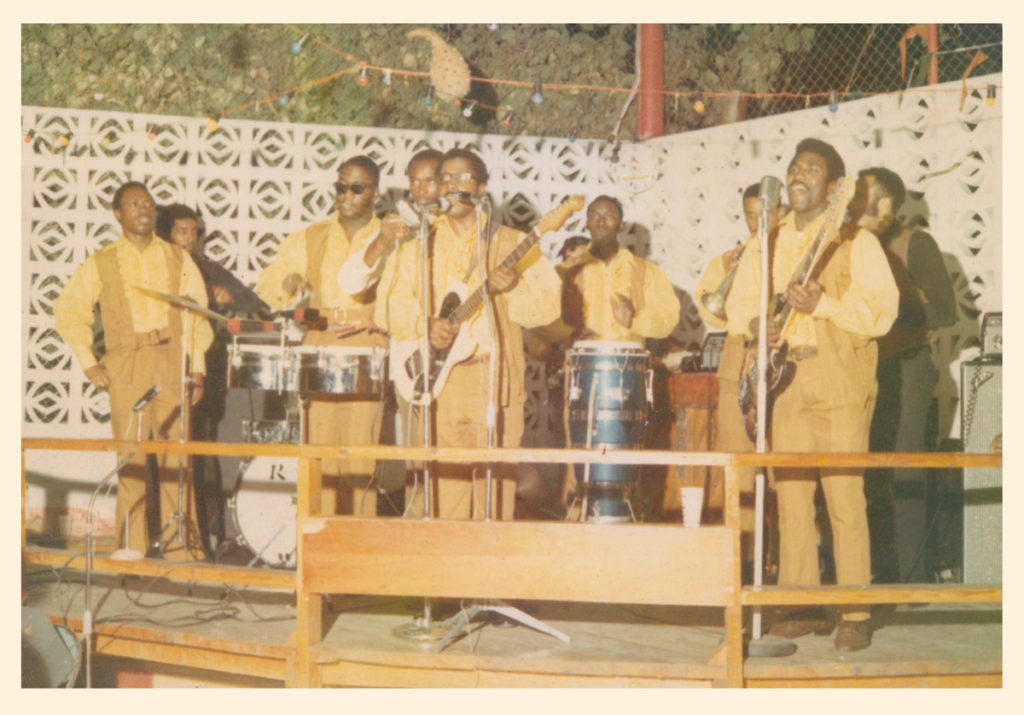
Weeks, himself a multi-instrumentalist who was talented at bass and guitar as well as proficient in just about any modern technology of the time, recognized the great musicianship and style that was present in The Exciters. The band played “Something Deep Inside” differently. The drums, guitar, and horns had a different flow to it, and Ralph dug that tremendously. They would go on to cut four songs together, recorded in 1971 in Panama City for the local label Sally Ruth and released as two separate 7-inches.They included the songs “Let Me Do My Thing,” a charged, uptempo funk jam in the style of the ubiquitous James Brown; “No Puedo,” another signature Weeks-penned original ballad; “Cuando Llegue A Phoenix,” a cover version of the famed “By The Time I Get To Phoenix”; and of course, “Algo Muy Profundo,” the new Spanish version of “Something Deep Inside.” Decades later, these two 45s, like the original issue of “Something Deep Inside” on STA4R’S, would be extremely rare finds, cherished showpieces in the crates of those soul and tropical collectors lucky enough to have them. “Algo Muy Profundo” in particular became a landmark tune in the hearts and ears of Panama, cemented in the musical canon of the country, often covered by local bands and performed by Weeks himself for decades to come.
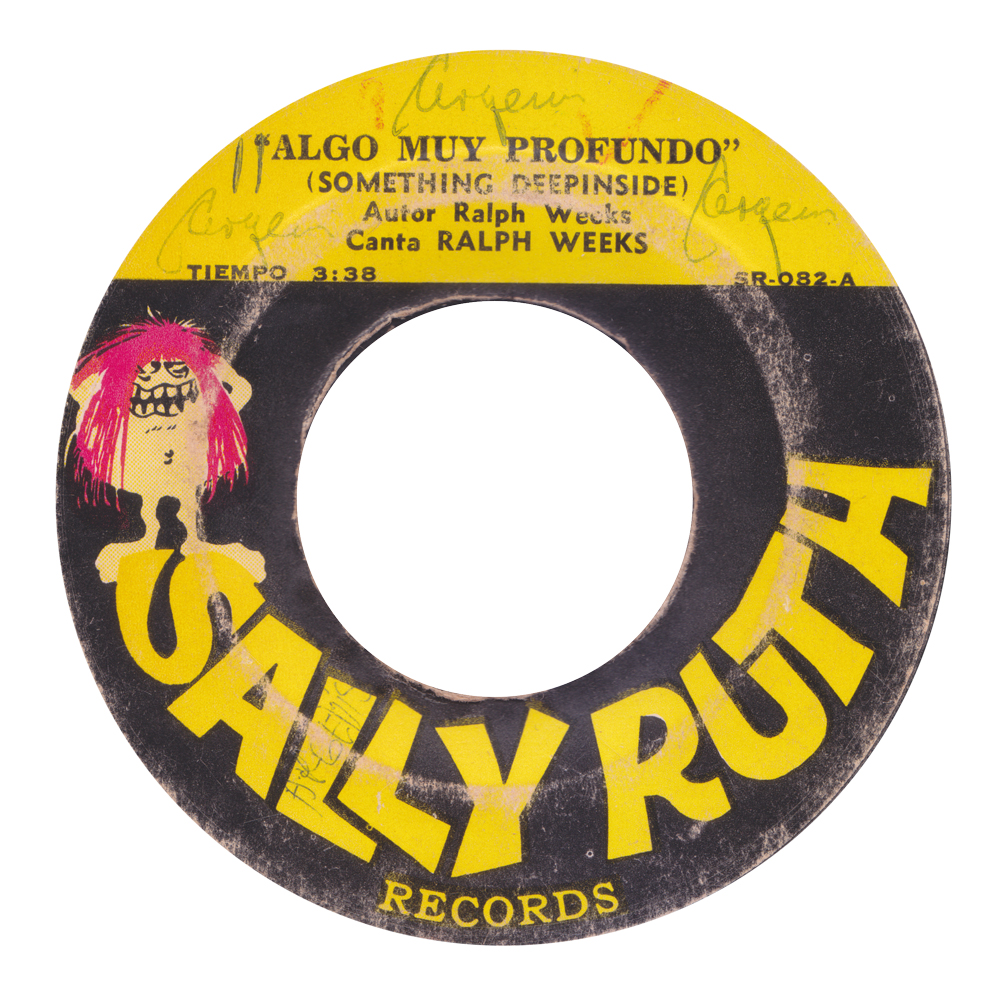
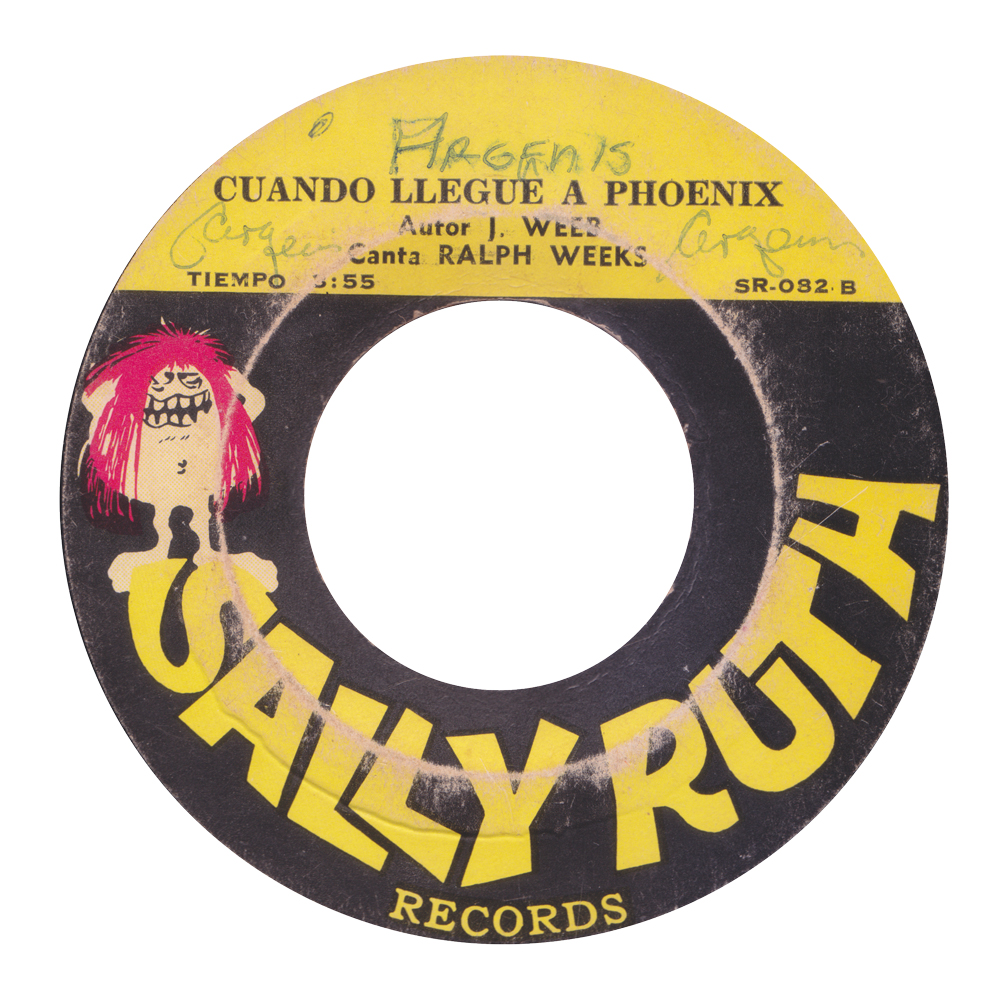
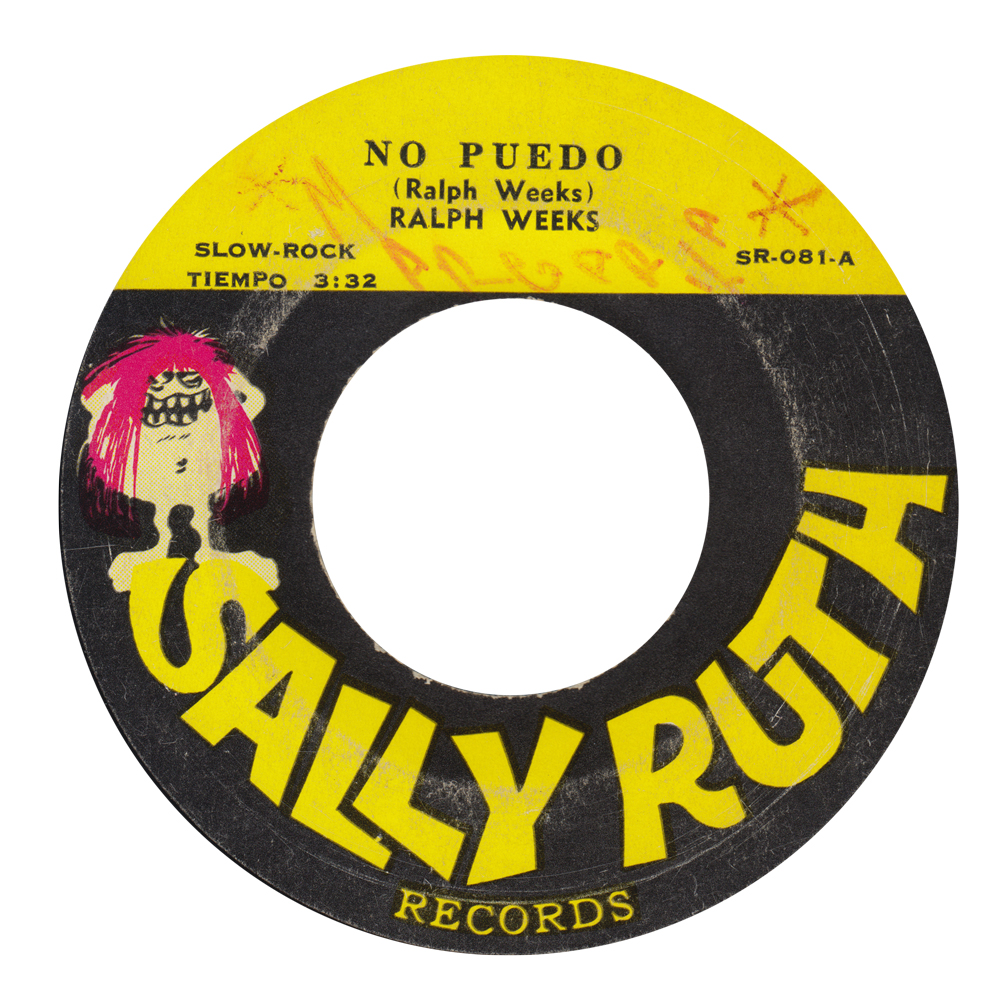
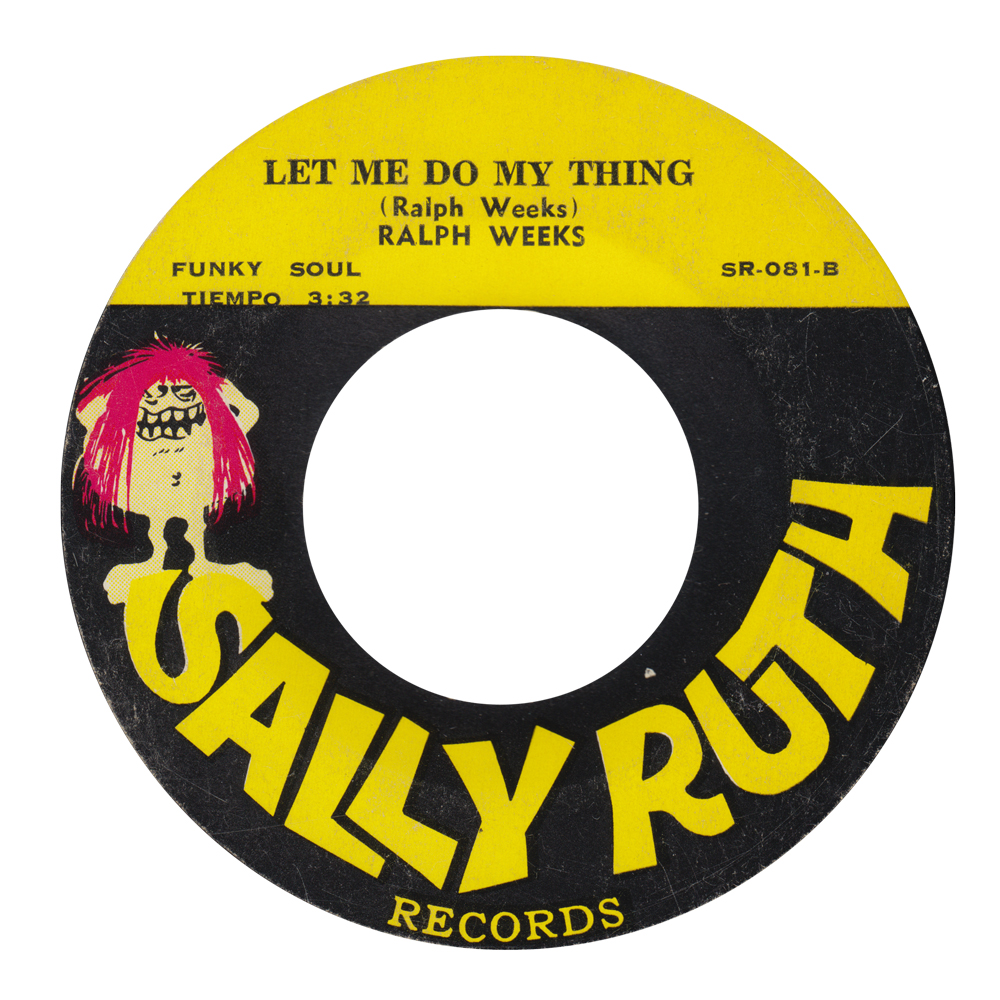
Although the cultural impact these recordings had over the decades is undeniable, they never enjoyed crossover commercial success, especially in the U.S., where the radio airwaves were still dominated by major label promotion and machinations. So despite the popularity Weeks enjoyed in Panama, and a cemented status as a musical beacon in the independent Latin communities of New York City, a catalyst to those making music around him, the musician’s life was far from a household-supporting vocation for Weeks.
Years earlier, in 1966, Weeks had moved from Brooklyn to New Haven, Connecticut, an increasingly popular outpost for many NYC transplants, especially those that originally migrated from the Caribbean. It was a cheaper and smaller alternative to the big city, with jobs readily available in the many factories still remaining from the industrial revolution kicked off in New Haven by Eli Whitney nearly a century before. Weeks secured what would become a lifetime job at the Winchester Rifle factory, where he applied his technical knowledge of the firearm from a 2-year stint in the U.S. Army.
Weeks’ family had taken a path to the United States common to many young Panamanians in the mid-20th century, the beneficiaries of a relaxed immigration policy from Panama to the States, a fortunate perk born out of the extremely fraught, nearly 60-year presence of the U.S. military in the Canal Zone. When Weeks joined his mother in New York and gained a secure permanent residence in the U.S. at the age of 17, he also connected for the first time with fellow Panamanian Johnny Matthews. They made a pact that when they turned 18, they would enlist in the Army, and after duty return to embark on a music career together in New York. It was an unwittingly fortuitous decision, as Weeks’ choice to enlist in the Army put him on the path to a safe and finite two year military career. He was stationed in Korea as a corporal specialist, and spent several months singing and playing guitar in The Bayonet Chorale in the USO, rather than in the trenches of a conflicted war. For Weeks, and likewise Matthews, their fulfilled commitments spared them any obligation in the upcoming U.S. military draft just a year later in 1964, a move of incredible fortune that sidestepped the unspeakable horrors of the Vietnam War. Ultimately, the decision allowed them to pursue their brief career together on Josie Records.
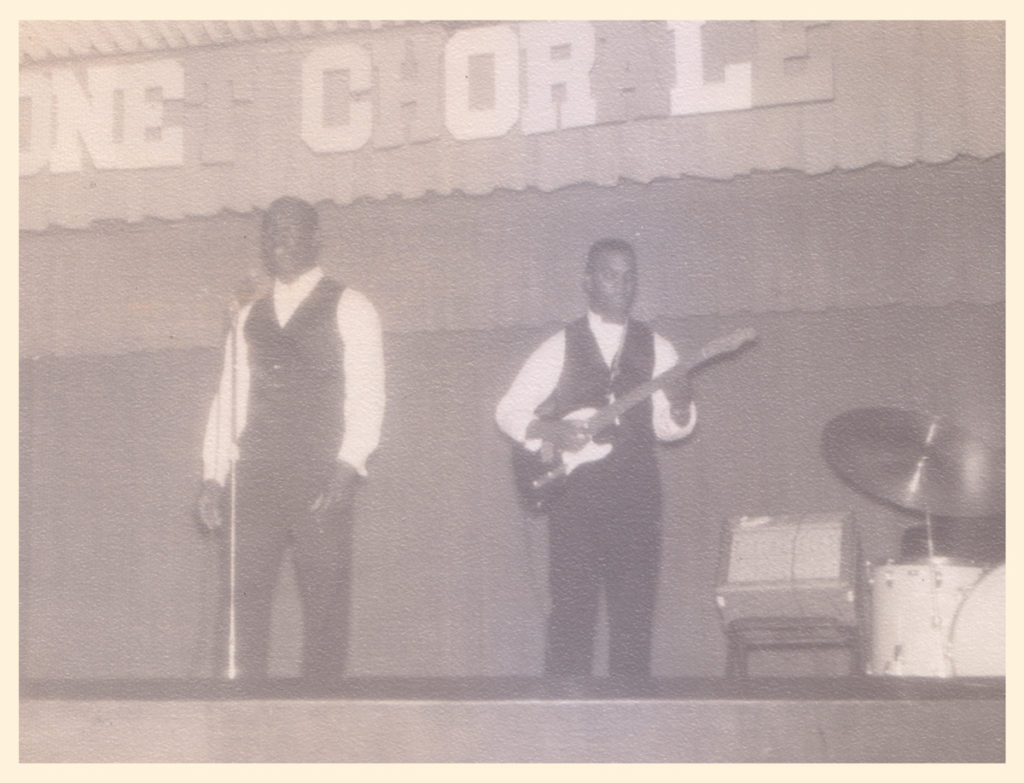
Back in Connecticut in the mid ‘60s after the deal with Josie fell through, Weeks enjoyed a humble but secure position for himself and his family, which allowed him to continue to experiment in music projects that he personally loved, a freedom outside of the market that may have been impossible under the umbrella of any major label backed music career. “I always just did my thing,” says Weeks. With no pressure to please anyone but himself, he exercised his musical flexibility to fuse all types of trends, rhythms and technology that would come and go over the years. He became adventurous in his experimentation, and was supremely skilled at blending a number of different styles popular in Panama, including calypso, soca, reggae and funk. Disco, new wave, and dancehall all had their turn as well, as Weeks’ experimentation continued into the ‘80s. As Weeks plugged away at his 9-5 career, he continued to spend ample time in both Brooklyn and Connecticut venues on the weekends, further developing his deep musical bond with the Panamanian community. His exploits in music were rarely documented, at least in the commercial sense. Weeks constantly wrote, performed and demo’ed new material, but the intriguing results will have to wait for another story.
Around 1973, Weeks made what seemed to be his final record, the last to see even a modicum of commercial distribution, with a newly formed group called Love, Warmth & Affection. Weeks’ new project was a departure from his short time with The Telecasters, but likewise was a natural expression of communal synergy, formed with his friend and countryman Pat Campbell, who helmed another local Brooklyn-Panamanian act called The Masters. The first two recorded songs as Love, Warmth & Affection (“Expression of Affection” b/w “Talking ‘Bout Love”) were tracked in the New Haven-based Dynamic Recording Studio, and released on a private imprint named Week-End Records, an ode to Weeks’ name and his weekend jaunts into making music. Again, like his previous record releases, this one would go on to achieve a cult status among a later generation of soul music collectors. Weeks wrote several songs that Love, Warmth & Affection would use, one of them recorded and sung by the aforementioned Pat Campbell (“Please Don’t Go,” EPOCA, Panama, 1974). Campbell, who wasn’t in fact featured on that first Love, Warmth & Affection release out of New Haven, would eventually become the de facto lead voice of the group. For Ralph, his time with the band was more about the experience and live performance than any commercial result. Love, Warmth & Affection would go on to have a 25-year independent career, yet Weeks remained fluid in his involvement with several different bands. Despite writing and performing with several outfits over the ensuing decades as a musical weekend warrior of sorts, Weeks would never cut another new record. Or so it seemed…
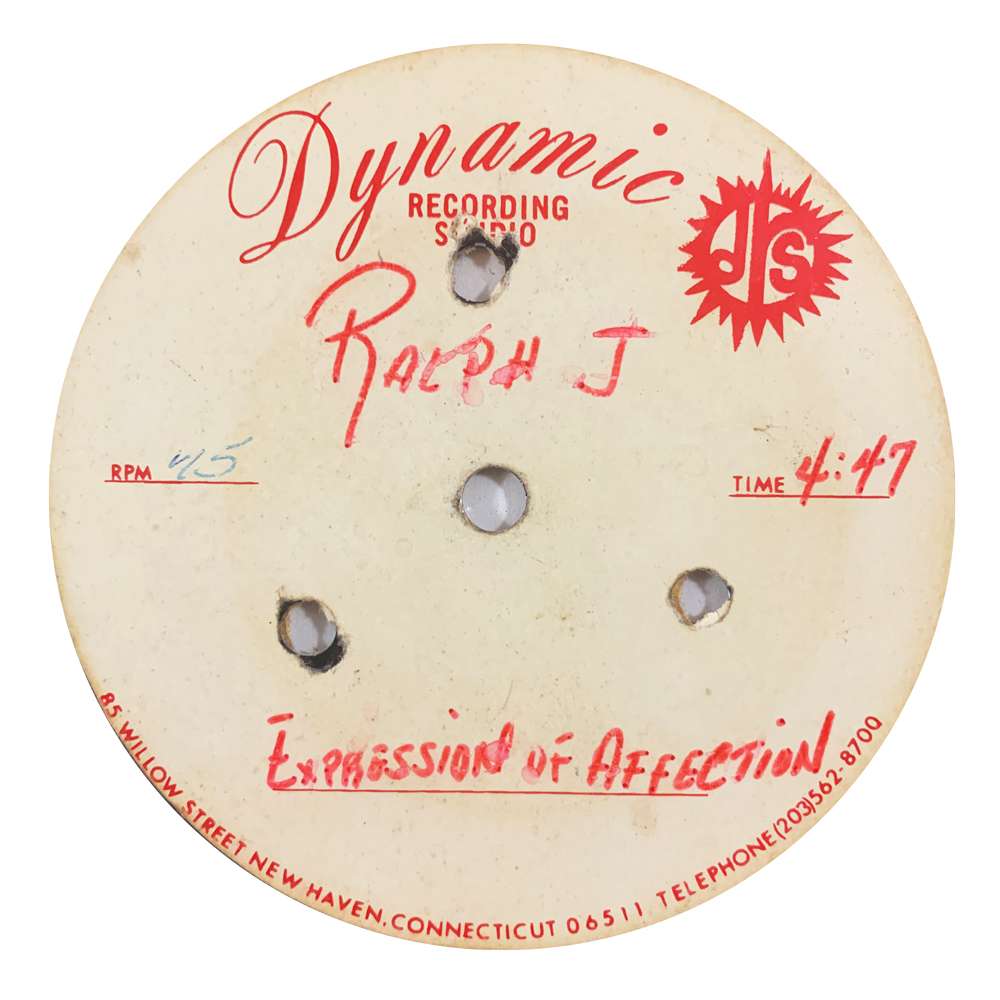

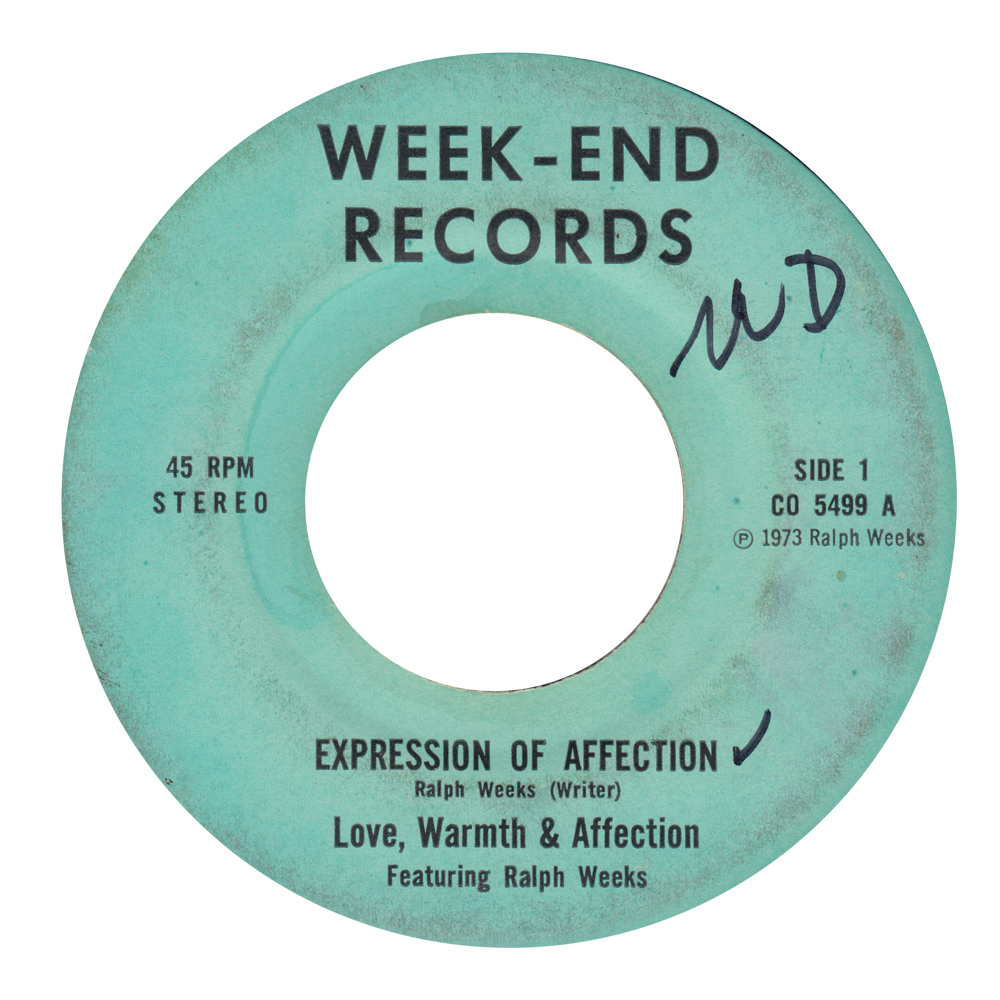
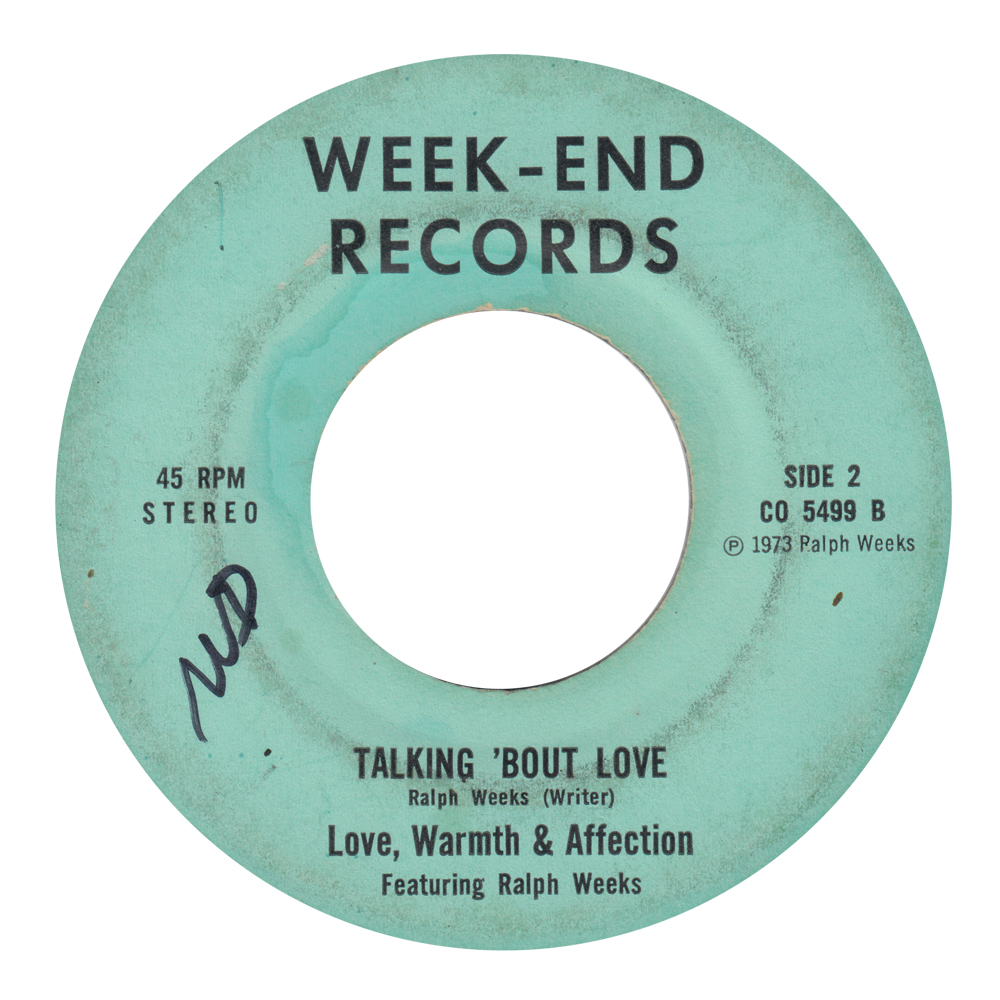
What came next was a rather serendipitous convergence between Ralph Weeks and Names You Can Trust, a meeting that began with a chance encounter in Panama between original Exciters member Carlos Brown and friend of NYCT, Josue Granados (Sonidero Mixteco). It was an encounter that led to the discovery of what few people knew, that Weeks was residing in Connecticut and making music, and had been for decades. In fact, the majority of the younger generation that collected Weeks’ music on record had very little information on his musical undertakings since that last release in 1973, and rightfully so, since there was nothing out in the field. Once together in person with the NYCT label, synchronicity turned naturally into a solid musical connection bonded over a shared belief in musical fusion, or rather a tying together of musical threads similar to those early eras in Panama. It’s a motif that has become a repeated theme throughout the decade-deep Names You Can Trust catalog, connecting the dots from NYC, the Caribbean and Latin America. A plan was immediately put into motion: return Weeks to the studio atmosphere he’d missed in the preceding decades, a vibe and musical presence that would be reminiscent of his time recording with The Telecasters and The Exciters.
In the ultimate tribute to Weeks’ wide ranging repertoire, NYCT label mates Combo Lulo unpacked his 50-year old original, and refashioned it into a timeless rocksteady ballad.
Rehearsed and recorded back in Weeks’ old stomping grounds of Brooklyn, much like Weeks ignited a new combination with The Exciters decades earlier in Panama, this was an opportunity to acquaint himself with a new band, and a whole new generation of musical talent. Says Weeks, “a different style, a different sound, a different rhythm and 50 years have passed. It was a lot of fun to work with somebody else. It was amazing.” Ultimately, it was also a chance for Weeks to reconnect to the music he wrote one fateful evening in a Brooklyn club, not one mile from where he was now getting familiar with a new band. For Combo Lulo, Names You Can Trust, and now the rest of his musical admirers, it’s a chance to hear how gracefully Weeks’ voice has aged, still silky smooth with those beloved falsetto runs, sweet and rounded like a barrel-aged añejo rum. It’s a testament to how timeless Weeks’ original music is, and certainly another reminder of how far and wide even the smallest of musical blips can resound.
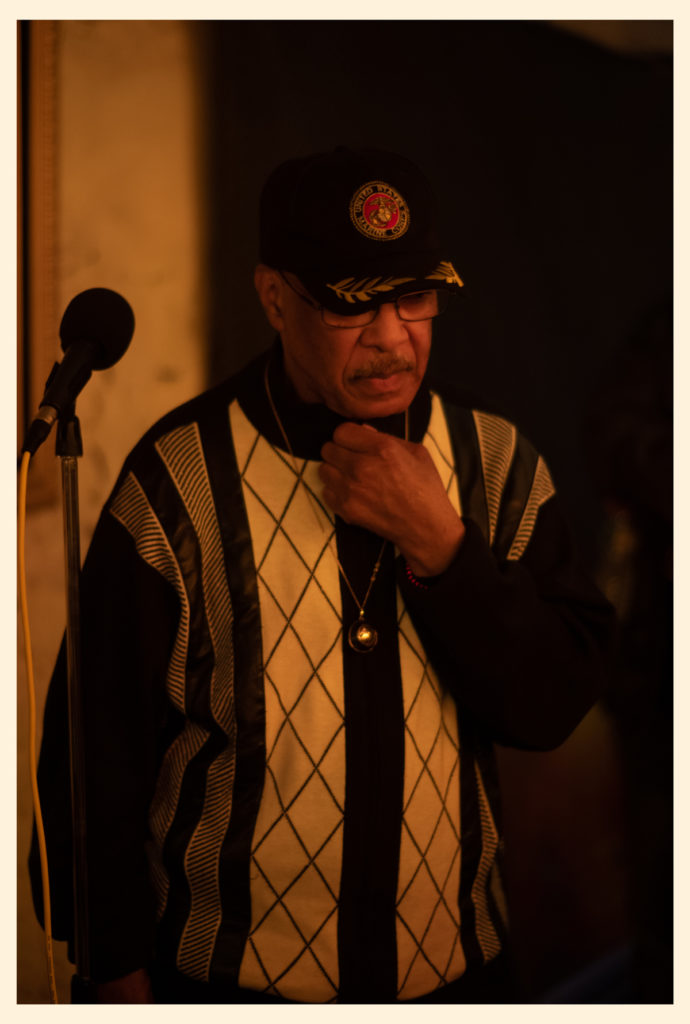
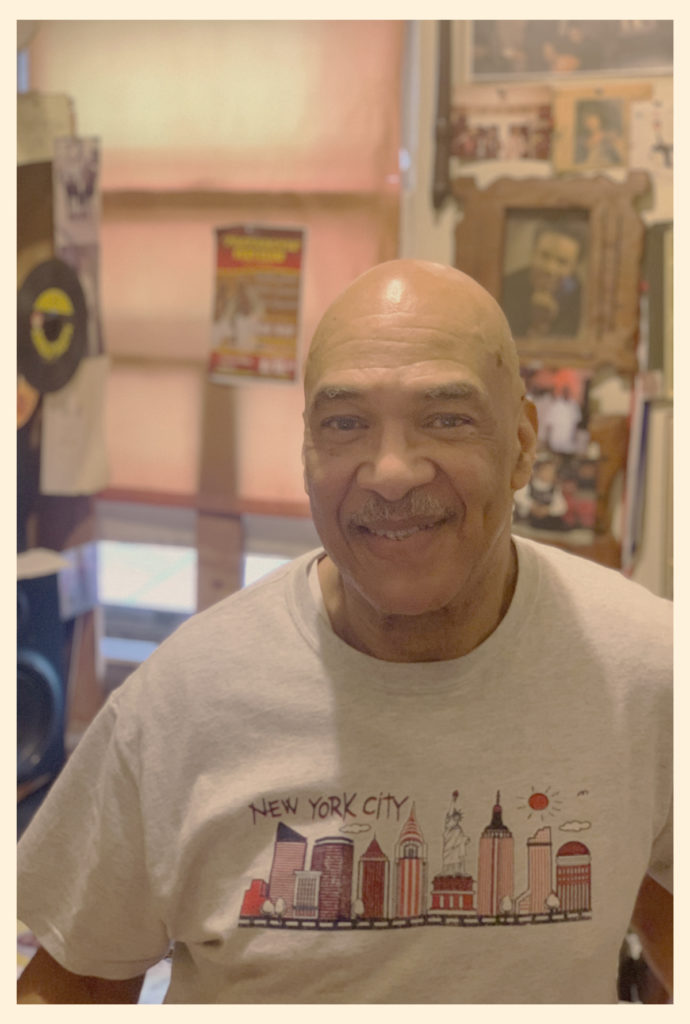
Presented as a double-sided bilingual 45 single, both versions of Weeks’ classic tune, “Algo Muy Profundo” and “Something Deep Inside,” have been formatted in the traditional Jamaican style, skillfully cut live and mixed under the guidance of NYCT and Combo Lulo’s talented musicians. It’s a tribute to a brilliant record and an unsung architect of Latin American sweet soul, but also a love letter to a very particular NY-Caribbean fusion that theoretically could have happened 50 years ago. After all, there was always something deep inside. ✰✰✰✰
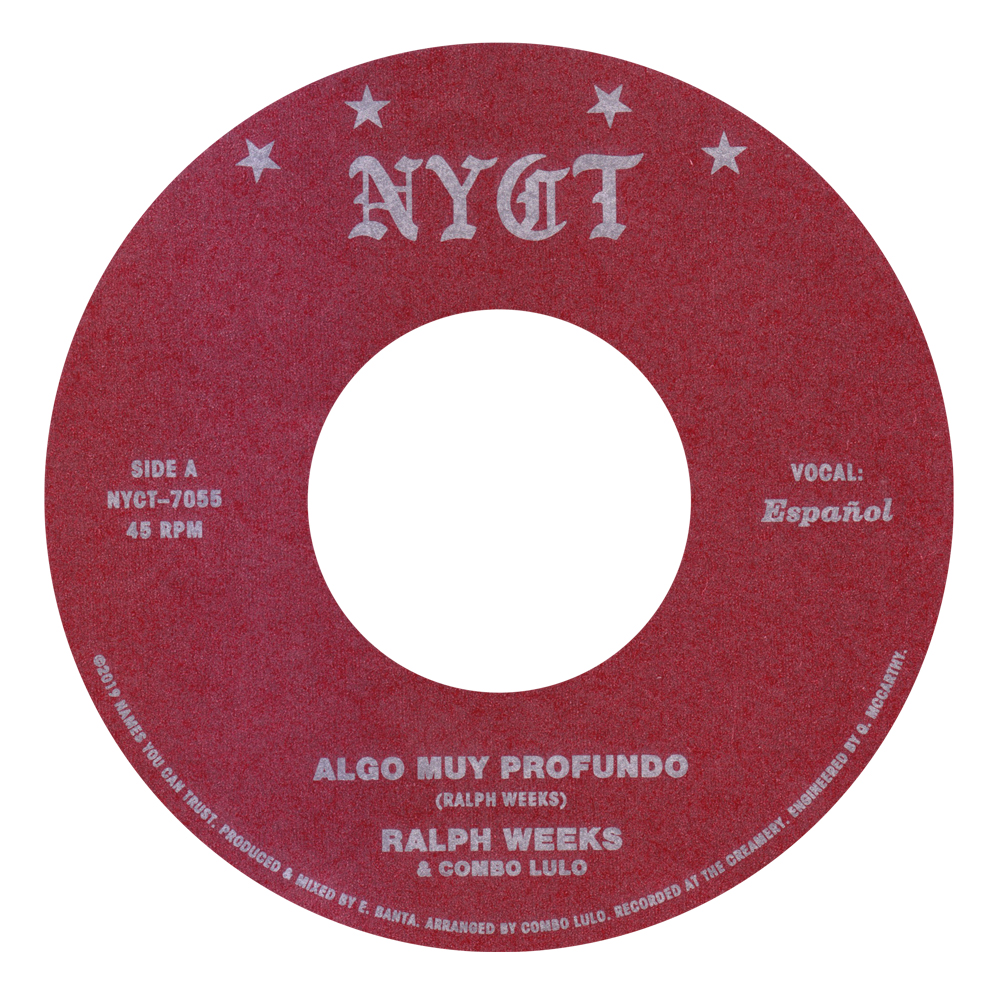
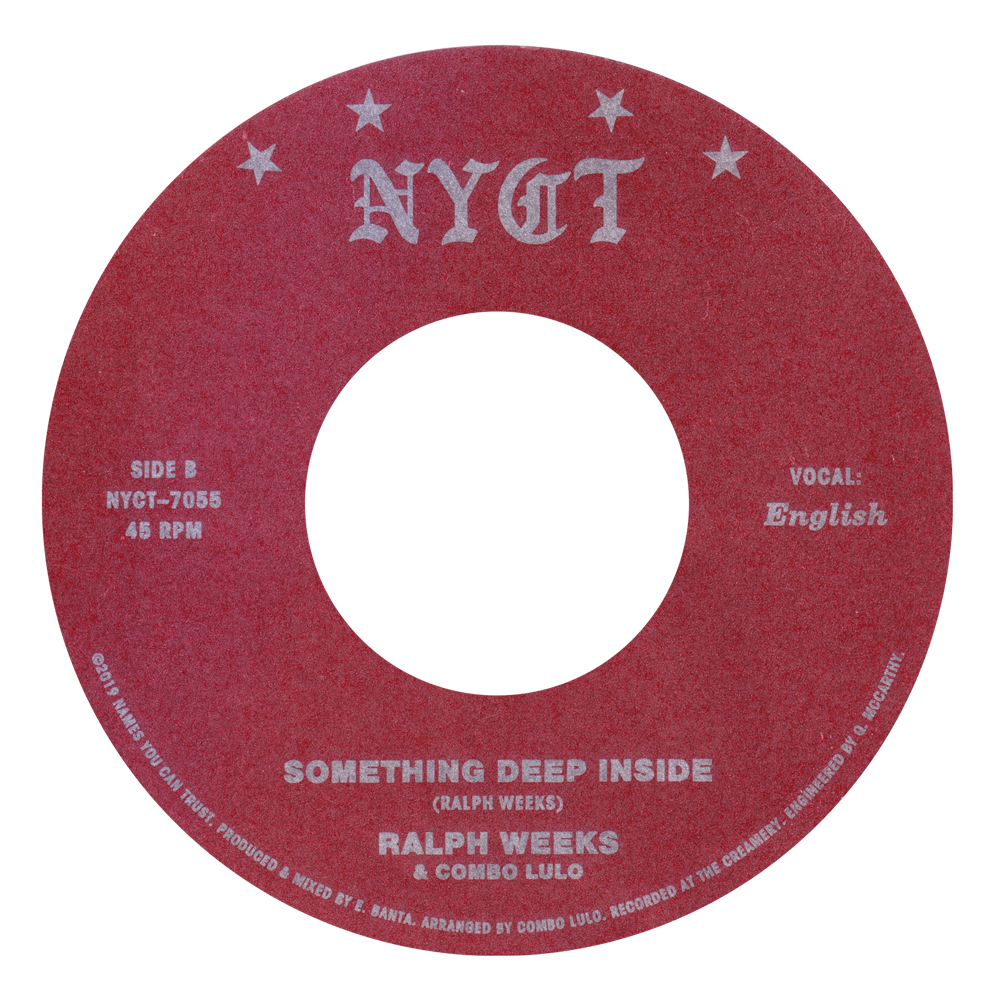
Ralph Weeks Vinyl Discography